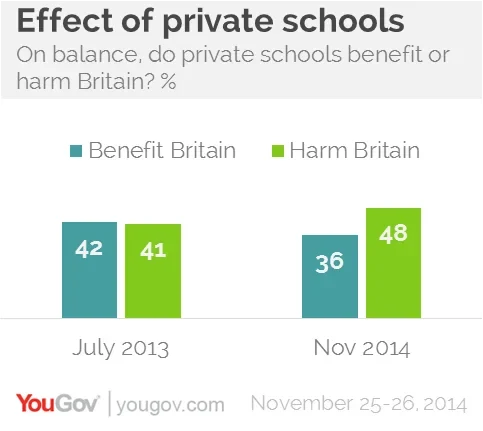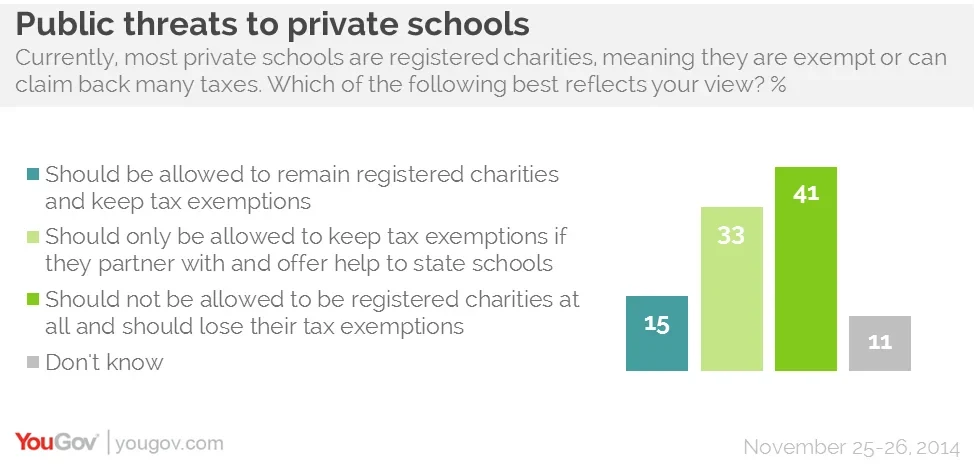British people tend to think private schools harm society – and support a firm stance on their tax exemptions
The Shadow Education Secretary Tristram Hunt threatened private schools’ tax exemptions this week, claiming they weren’t playing their part, and had created a “corrosive divide of privilege”. Currently private schools are exempt from a number of taxes due to their charitable status, which Labour had looked at removing if they did not meet a public benefit test. After a court case effectively ruled out that route, however, the party said a future Labour government would remove private schools’ exemptions from paying business rates on their properties if they cannot prove they have helped and integrated with state schools.
YouGov research finds public support for a new approach to independent schools, with the most popular strategy being to remove their charitable status altogether.

Since July last year, opinion has moved slightly against public schools. Then, 42% thought they were a benefit to Britain, providing good education and acting as beacons of excellence to state schools, while 41% thought they harmed Britain, reinforcing privilege and social division. Now, 48% say they are harmful, and 36% say they are a benefit.
With the general motivation for threatening public schools, majorities of every group agree: it’s a good idea for them to lend teaching staff to state schools, help them with university admissions and compete with them at sports and debate.
But on Labour’s policy itself, the most popular response is more hard-lined. 41% say private schools should not be allowed to be registered charities at all, regardless of whether they partner with state schools. 33% support Tristram Hunt’s current proposal of allowing them tax exemptions if they integrate with state schools. Only 15%, including 29% of Conservatives, say independent schools should suffer neither.

Private schools are granted charitable status on the condition – the same condition applying to all charities – that they provide a public benefit. ‘Public benefit’ does not mean that all of the public should benefit, however – only that some should. Despite satisfying this criteria, many argue that since they make profit and often use state-trained teachers, the generous tax arrangements are not justifiable. Proponents, on the other hand, say that by taking around 7% of students out of the state system they actually reduce the burden on the public purse.








